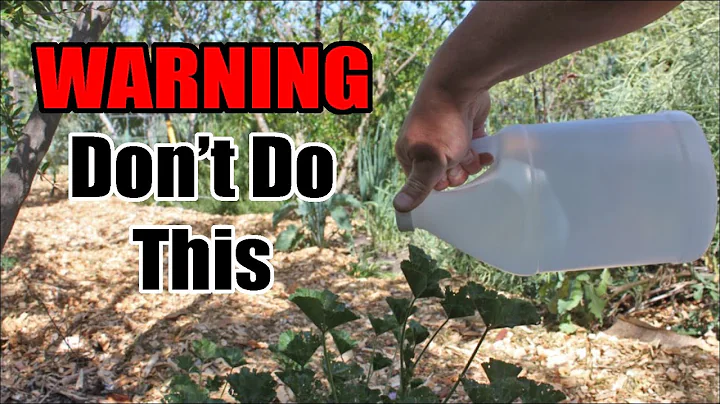How long does vinegar last in soil?
How Long Does Vinegar Last in Soil? Vinegar breaks down quickly in soil, which is one of the reasons it is so ineffective at killing weed roots. The amount of vinegar that reaches the soil when you spray a weed will break down in 2–3 days, sooner if you experience rain or you water the soil.
As vinegar temporarily changes soil pH, it may be harmful to garden plants and roots so avoid applying too close to those areas (though such an application used just once or twice should be okay).
Changes to Soil pH
If vinegar concentrates are added to the soil instead of being sprayed onto plant foliage, they kill weeds by lowering the soil pH to a level that cannot sustain the plants. Depending on the soil type and the weather, this acidifying effect can take from a few months to a year.
Beware, though. Vinegar can kill your grass too and, if too much is applied, can make the soil infertile if you put too much in it, so be careful not to spray on your lawn unless you want to replant the grass.
Application of a salt-and-vinegar weed killer should be generous—but only to the weeds' leaves. Adding acid and salt to the soil around the plants will kill nutrients in the ground that are essential to plant life, so the soil's saturation means that weeds won't be able to grow there—but neither will anything else.
Safety and Environmental Notes
Because vinegar is edible and all-natural it is easily biodegradable and environmentally friendly.
- Killing Weeds.
- Lower pH of Soil.
- Cleaning Garden Tools.
- Keep Animals Away.
- Stimulate Seed Growth.
- Stop Ants.
- Kill Fruit Flies.
- Popular Videos.
Specifically, aphids and fruit flies love the scent of vinegar and will seek it out. You can use this to your advantage by creating traps. Mixing a quart of water, 12 ounces of vinegar, and a tablespoon of dish soap, you can create a mixture that will rid your garden of annoying, buzzing pests.
The grass blades will grow back in seven to ten days. What is this? In conclusion, household vinegar does not kill grass unless it is less than two weeks old. If the roots are established, the grass blades may burn and wilt away.
Use one cup of vinegar for every gallon of water.
This simple approach will do for an average backyard garden. As you continue to water your soil regularly with the mixture, you should take soil samples to check the soil pH levels with a test kit so you don't overdo the acidity level.
Can you add vinegar to soil to make it acidic?
To lower the pH level of soil and make it more acidic, vinegar can be applied by hand or using an irrigation system. For a basic treatment, a cup of vinegar can be mixed with a gallon of water and poured over soil with a watering can.
To lower pH in the aquarium, use 1ml of vinegar per gallon of water. This measurement system is proven to lower the tank's pH levels by around 0.3 points.

Before we discuss the best uses, it's important to know that horticultural vinegar is a dangerous substance. If used improperly, it can cause burns or even blindness. Yes, it is a natural product, but it is an acid and must be treated with caution and care.
